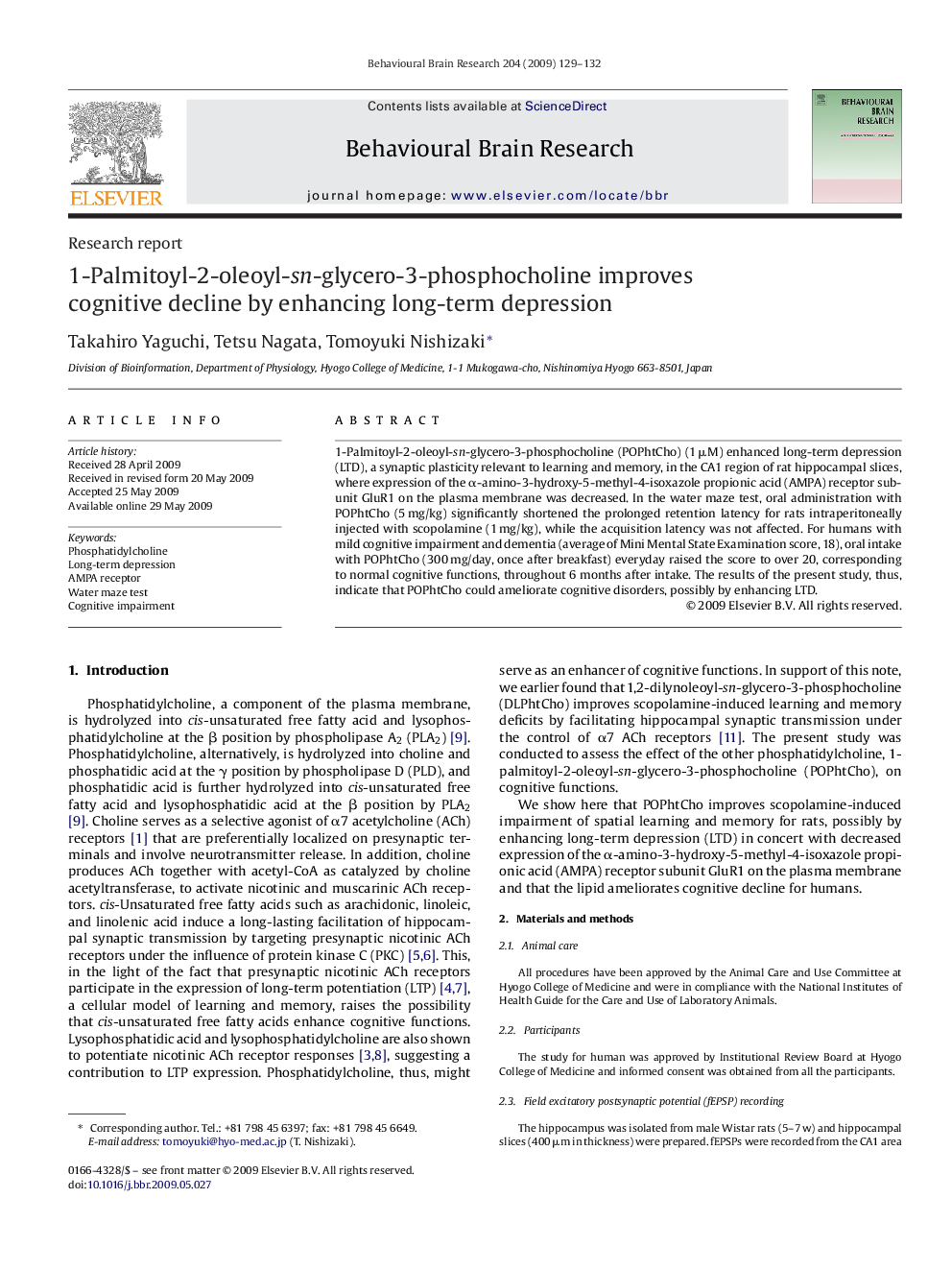| Article ID | Journal | Published Year | Pages | File Type |
|---|---|---|---|---|
| 4314691 | Behavioural Brain Research | 2009 | 4 Pages |
1-Palmitoyl-2-oleoyl-sn-glycero-3-phosphocholine (POPhtCho) (1 μM) enhanced long-term depression (LTD), a synaptic plasticity relevant to learning and memory, in the CA1 region of rat hippocampal slices, where expression of the α-amino-3-hydroxy-5-methyl-4-isoxazole propionic acid (AMPA) receptor subunit GluR1 on the plasma membrane was decreased. In the water maze test, oral administration with POPhtCho (5 mg/kg) significantly shortened the prolonged retention latency for rats intraperitoneally injected with scopolamine (1 mg/kg), while the acquisition latency was not affected. For humans with mild cognitive impairment and dementia (average of Mini Mental State Examination score, 18), oral intake with POPhtCho (300 mg/day, once after breakfast) everyday raised the score to over 20, corresponding to normal cognitive functions, throughout 6 months after intake. The results of the present study, thus, indicate that POPhtCho could ameliorate cognitive disorders, possibly by enhancing LTD.
